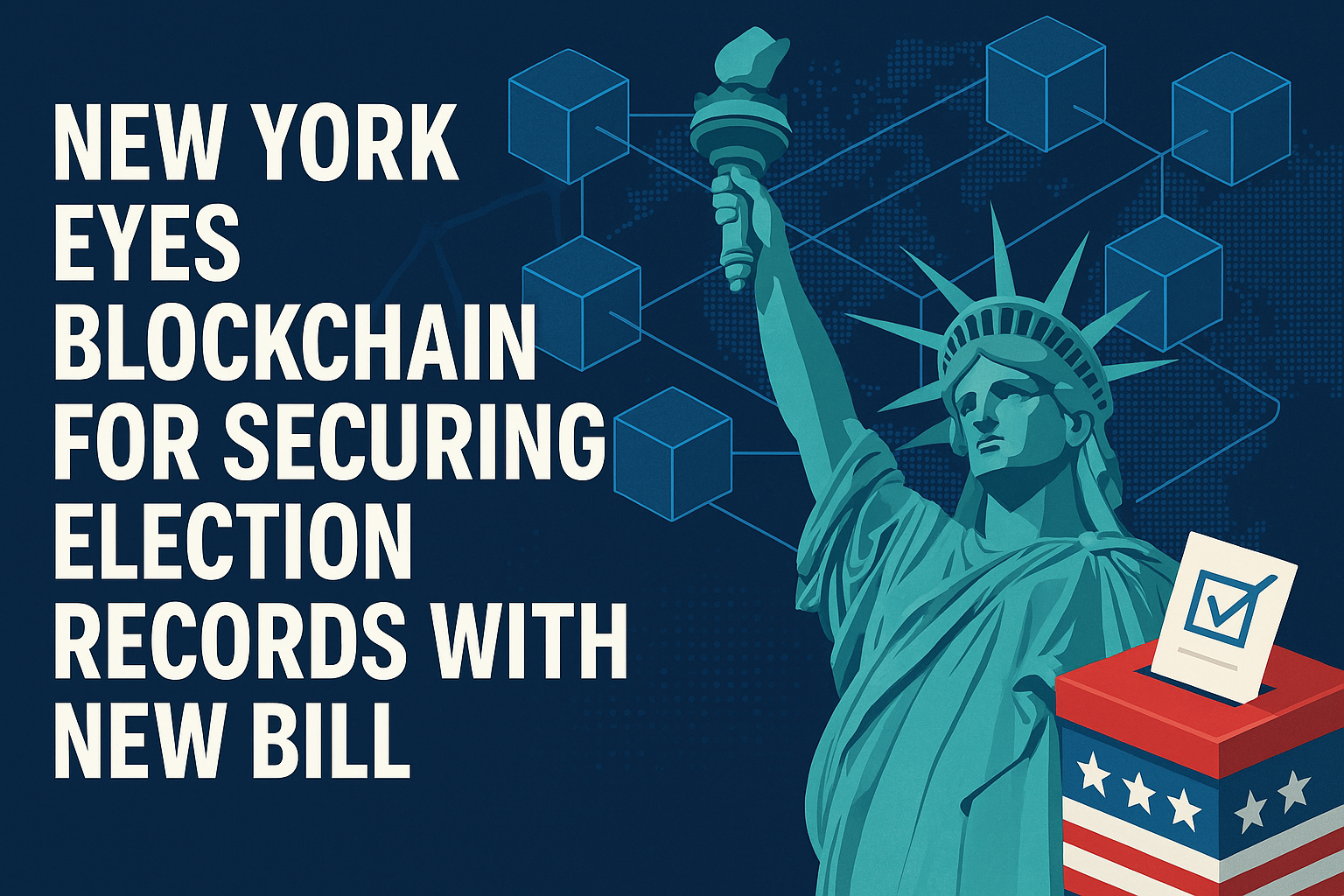
In a move that could redefine how elections are secured in New York, Assemblymember Clyde Vanel has introduced a groundbreaking bill that aims to study the application of blockchain technology in safeguarding voter records and election results. Introduced on April 8, Bill A07716 proposes a formal evaluation by the state’s Board of Elections to determine if blockchain’s tamper-resistant features can bolster trust and transparency in the voting process.
The legislation mandates a comprehensive report within one year of its passage, requiring the involvement of experts in blockchain technology, cybersecurity, voter fraud prevention, and election recordkeeping. The goal: to explore whether blockchain can provide a secure, immutable system for managing sensitive electoral data and preventing tampering or manipulation.
This legislative proposal is not arriving in a vacuum. Governments and organizations around the world have been experimenting with blockchain voting systems in pursuit of greater electoral integrity. For example, in early March, the Republican Party Convention in Williamson County, Tennessee, used the Bitcoin blockchain to record and secure local election results. These efforts are driven by blockchain’s potential to offer verifiable, unalterable records that can be publicly audited.
Brian Rose, an independent London mayoral candidate and blockchain advocate, previously emphasized the technology’s potential in elections. He argued that a blockchain-based system would allow for verifiable identities and immutable vote records, ultimately boosting public trust. “This is the future,” Rose said, highlighting how transparency and accountability could be revolutionized by distributed ledger systems.
However, despite the technology’s promise, experts warn that blockchain is not a cure-all. A widely recognized caveat—“garbage in, garbage out”—underscores that the integrity of blockchain systems is only as strong as the data entered into them. While blockchain can secure data from being altered after entry, it does not inherently verify the accuracy of that initial input. Without secure and trusted data onboarding, the blockchain’s immutability could just as easily preserve flawed or fraudulent data.
Assemblymember Clyde Vanel is no stranger to the intersection of technology and legislation. In March, he introduced a bill to crack down on cryptocurrency fraud and protect investors from deceptive practices like rug pulls. Earlier this year, he also highlighted that New York was the first state in the U.S. to establish a cryptocurrency task force aimed at regulating and understanding digital assets. Vanel has consistently advocated for increased dialogue between policymakers and the blockchain industry, urging developers and startups to engage more with lawmakers to shape thoughtful regulation.
As Bill A07716 moves to the Assembly Election Law Committee for consideration, the discussion around blockchain and voting is likely to intensify. Supporters hope the study could pave the way for more secure and transparent election systems, while critics urge caution, emphasizing that technological solutions must be implemented carefully and with robust safeguards.
Whether blockchain ultimately becomes a core part of New York’s electoral infrastructure remains to be seen, but the conversation is undoubtedly gaining momentum.

